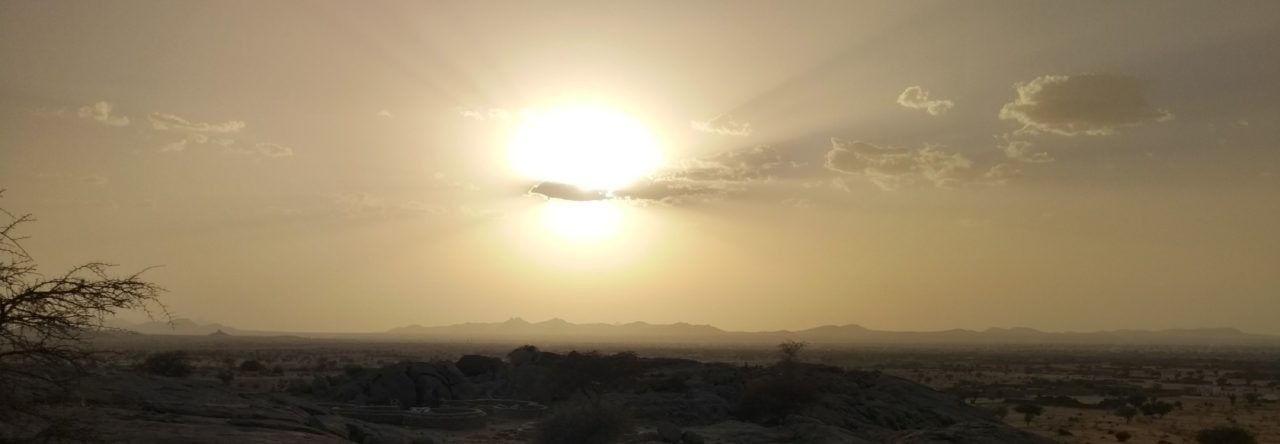Taking Calla Grace on visits has afforded many opportunities to learn more about Chadian culture! Yesterday, I took her to visit a new friend and the hostess gave me perfume to put on myself and Calla Grace. I also have learned that Chadians will never mention that she is big or heavy (even though she is 2 1/2 months old and weighing in at around 15 lbs now).
My friends think it could cause the baby to get sick if someone says it because they are afraid of an “evil eye.” (This is a good example of syncretism – an animistic belief that is deeply ingrained in many African cultures, despite the “foreign” religion of Islam that has now taken prominence in their lives.) I have learned that you should not nurse in front of a lot of people you don’t know (not for modesty’s sake, but again, because of the fear of the evil eye that could make you or your baby sick).
Calla Grace had a strange, painless bump appear on her arm a few weeks ago and our doctor friend from the States didn’t know what it was. I was visiting a few days ago and noticed two other babies similar in age to Calla Grace also had the same bump on their arm. It was then that I remembered it as the same location she received her Tuberculosis vaccine (a vaccine that is no longer given in the States, but one that everyone here still receives). I asked around and everyone showed me their small scar on their arm from the vaccine. She didn’t even cry when she got it, but now she has physical proof that she was born in Chad (other than the birth abroad certificate that Josh just picked up from the U.S. Embassy a few days ago!).



